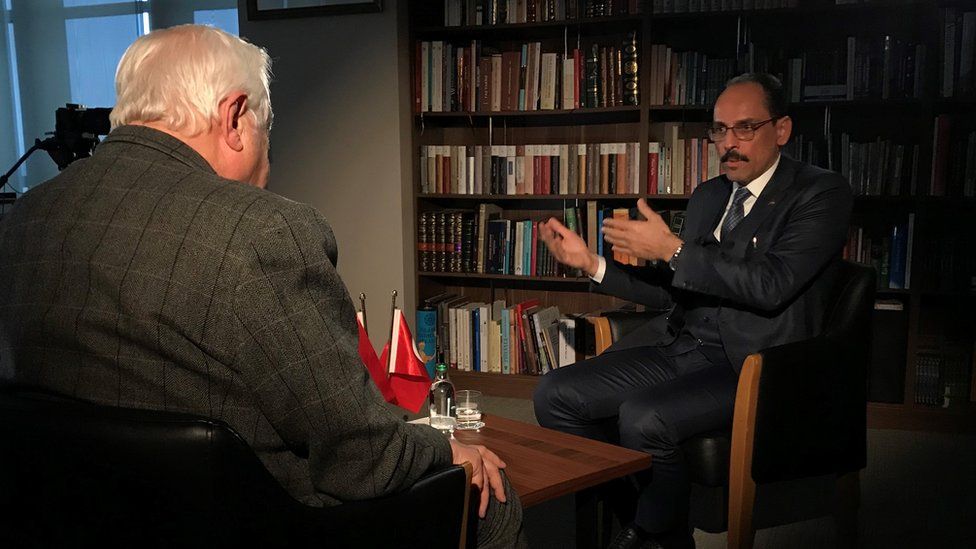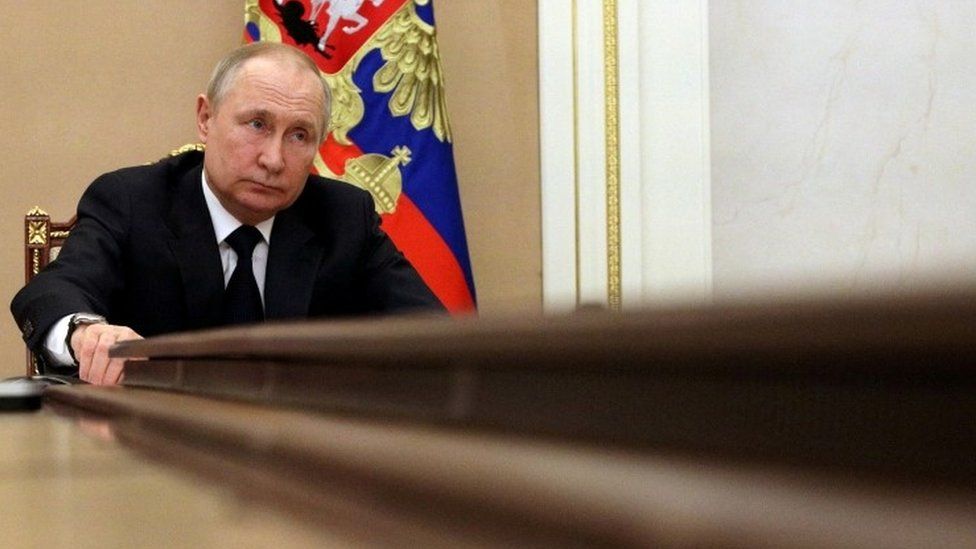On Thursday afternoon, President Vladimir Putin rang the Turkish President, Recep Tayyip Erdogan, and told him what Russia’s precise demands were for a peace deal with Ukraine.
The phone call was made through Turkey as it has positioned itself with great care to be the go-between with Russia and Ukraine – and this seems to be paying off.
The Russian demands are as follows:
First, acceptance by Ukraine that it should be neutral and should not apply to join Nato. From our understanding Ukraine’s President, Volodymyr Zelensky has already conceded this.
Ukraine would have to undergo a disarmament process to ensure it wasn’t a threat to Russia.
There would have to be protection for the Russian language in Ukraine. And there is something called de-Nazification.
This is deeply offensive to Mr Zelensky, who is himself Jewish and some of whose relatives died in the Holocaust, but the Turkish side believes it will be easy enough for Mr Zelensky to accept. Perhaps it will be enough for Ukraine to condemn all forms of neo-Nazism and promise to clamp down on them.

Mr Putin (pictured above) said that it would need face-to-face negotiations between him and President Zelensky before an agreement could be reached on these points.
Mr Zelensky has already said he’s prepared to meet the Russian president and negotiate with him one-to-one.
The assumption is that Russia will demand that the Ukrainian government should give up territory in eastern Ukraine. That will be deeply contentious.

The other assumption is that Russia will demand that Ukraine should formally accept that Crimea, which Russia illegally annexed in 2014, does indeed now belong to Russia. If this is the case, it will be a bitter pill for Ukraine to swallow.
Nevertheless, it is a fait accompli, even though Russia has no legal right to own Crimea and actually signed an international treaty, after the fall of Communism but before Vladimir Putin came to power, accepting that Crimea was part of Ukraine.
Still, President Putin’s demands are not as harsh as some people feared and they scarcely seem to be worth all the violence, bloodshed and destruction which Russia has visited on Ukraine.
Given his heavy-handed control over the Russian media, it shouldn’t be too hard for him and his acolytes to present all this as a major victory.
























